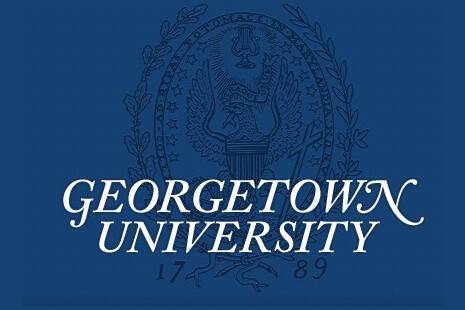Two years of organizing and bargaining at Georgetown University came to a successful conclusion October 28 when adjunct instructors there ratified a proposed contract reached in September. (See also Kevin Clarke’s Oct. 10 post).
Adjunct instructors across the nation have been hard-pressed by changes in the higher education teaching model. Universities have shifted increasing amounts of the teaching load from relatively expensive full-time, tenured faculty to adjuncts paid by the course and enjoying few or no employment benefits. Adjuncts have tried to form unions in response.
Many universities, both Catholic and secular, have fought bitterly against union organizing efforts, and Catholic universities choosing this route have a legal advantage their secular counterparts do not. It’s generally unlawful for a university to fire adjunct instructors for attempting to form a union, or to refuse good-faith bargaining when they have chosen union representation. Some Catholic universities, however, are citing their religious identity to claim an exemption from the labor laws that oblige secular employers to respect workers’ right to organize.
The legal issue, though, is really beside the point. Even if a Catholic school can deny its employees the right to organize with impunity, that doesn’t mean it should. Catholic social teaching is clear and unequivocal about the right of workers to organize. That’s why many Catholic high schools around the nation, though exempt from these labor laws, have recognized and bargained with faculty unions.
In a similar way, Georgetown leaders reasoned that Catholic social doctrine regarding labor means just what it says, so they agreed to respect their instructors’ decision about whether to form a union, and established an amicable bargaining relationship when they did. The result was a labor agreement based in compromise and mutual respect.
I suspect that many Catholics outside the universities are looking at the legal battles over Labor Board jurisdiction through the lens of the Affordable Care Act fiasco more than the issues at hand. I hope that as other Catholic institutions review and discuss the contract at Georgetown it will demystify the process a bit and alleviate concerns. Collective bargaining is not artificial contraception – it’s something we believe in as Catholics. Catholic Colleges and universities face many challenges to their religious mission and identity in modern America, but labor unions are not one of them.








